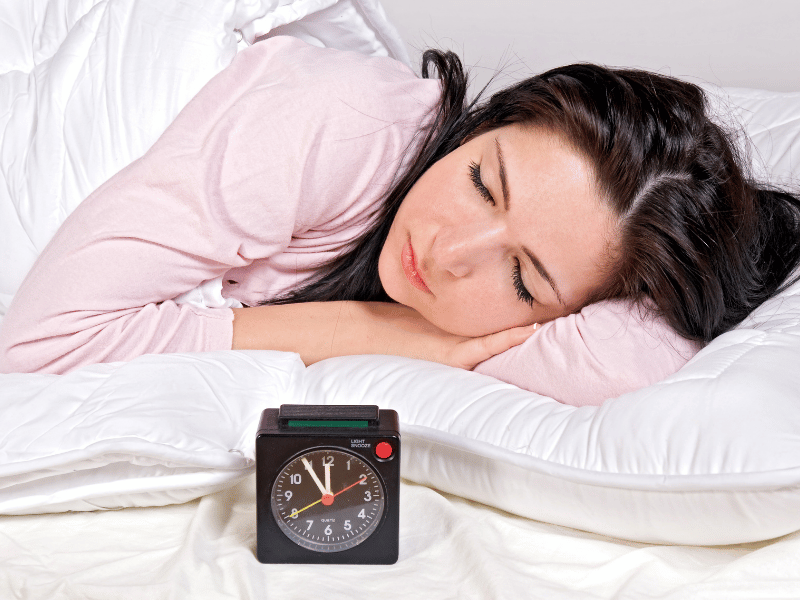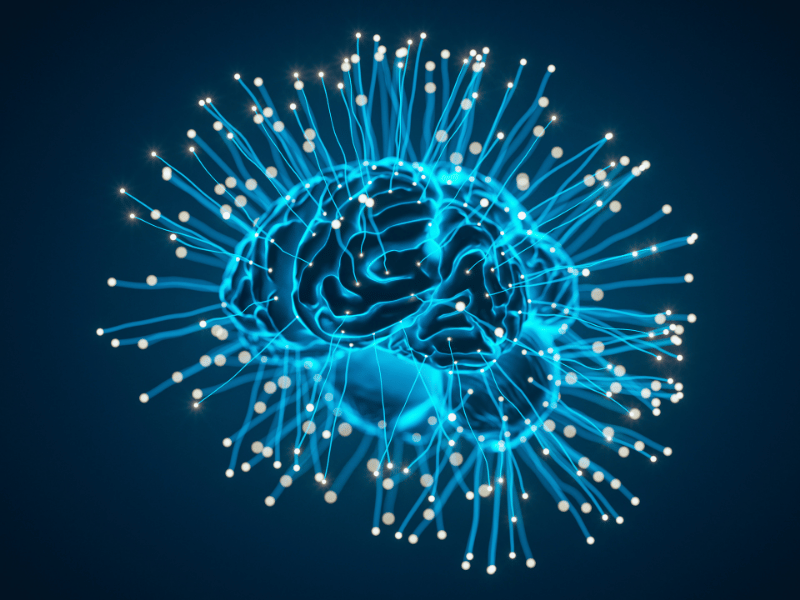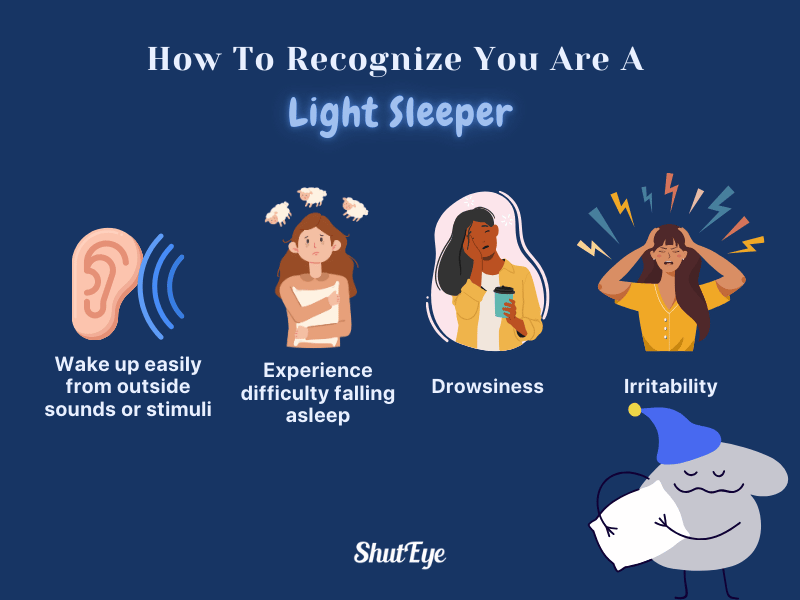


Do you tend to wake up easily even with the slightest noise? You might have tried various solutions but to no avail. If this sounds like you, there’s a chance that you are a light sleeper. Don’t get confused with being in a light sleep stage as they are not the same.
In this article, we will explore what it means to be a light sleeper, the causes, and some strategies to ensure a good night’s rest.

A light sleeper is someone who wakes up easily even with the slightest sleep disturbances. Factors that can affect sleep quality include:
Light sleepers are also more likely to experience sleep deprivation, and irritability which may lead to higher susceptibility to diseases as well as negatively affect mental and physical health [1].

Some people have this perception that being a light sleeper means that you are constantly stuck in the light sleep stage of the sleep cycle. However, this isn’t true.
Light sleepers just have a heightened sensitivity to their environment but they still go through all four stages of the sleep cycle.
The stages of sleep can be divided into two categories: rapid eye movement (REM) and non-rapid eye movement (NREM) sleep. Under these categories, it is further broken down into four different stages.
These stages are:
Light sleep and deep sleep are both distinct stages of the sleep cycle. They both play essential roles in the adequate functioning of the body but for different aspects.
Light sleep is part of the non-REM sleep stage and acts as a transitional stage between wakefulness and deep sleep. It is easy to wake up during this stage. While this stage does not offer many restorative benefits compared to the deep sleep stage, it helps to prepare the body for a good rest.
In contrast, deep sleep is considered to be the most restorative stage and is significantly harder to wake up from compared to light sleep. During this stage, your body is focused on repairing tissues, strengthening the immune system, and consolidating memories [2].
Overall, both stages are essential for maintaining good overall health.

Factors such as brain waves, hormonal changes, lifestyle changes, and mental health conditions can cause someone to be a light sleeper.
A brain wave spike known as sleep spindles, serves as a protection against external stimuli such as sound and light [3]. If a person experiences more sleep spindles, it means that they are less likely to wake up easily. This occurrence is less common in light sleepers, making them more susceptible to waking up.

You are likely to be a light sleeper if you exhibit any of these symptoms:
As a light sleeper, there are some home remedies that you can turn to, to improve your sleep hygiene and fall asleep better at night.
Here are some common strategies:
Alternatively, you may also consult with a healthcare professional to treat any sleeping problems that you may have. Most of the time, medications are used to treat insomnia but it can benefit light sleepers who have problems trying to stay asleep or get deeper sleep.
Otherwise, cognitive behavioral therapy (CBT) could also be a good non-pharmacological approach to help with your light sleeping.
It is not easy trying to get a good amount of sleep as a light sleeper when everything wakes you up easily. Luckily, there are ways to help you improve your sleep quality including making changes to your sleep hygiene and habits.
Alternatively, using a sleep app like ShutEye® can help to promote healthy sleep patterns. ShutEye® app tracks your sleep cycle and offers personalized sleep tips to help you get better rest at night.
J. Fernandez, L. M., & Lüthi, A. (2020). Sleep Spindles: Mechanisms and Functions. Physiological Reviews. Available at: https://doi.org/PRV-00042-2018
Ferrarelli, L. K. (2023). Light sleeper? Eat more protein. Science Signaling. [online]. Available at: https://doi.org/adh9952
Patel AK, Reddy V, Shumway KR, et al. Physiology, Sleep Stages. [Updated 2024 Jan 26]. In: StatPearls [Internet]. Treasure Island (FL): StatPearls Publishing; 2024 Jan-. Available at: https://www.ncbi.nlm.nih.gov/books/NBK526132/